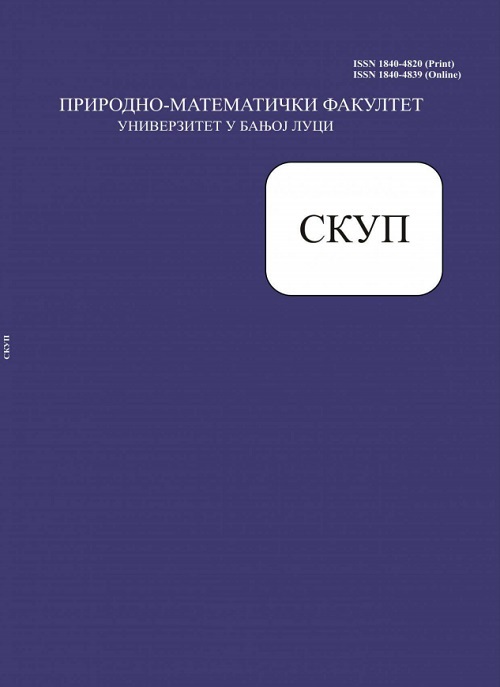DIFFERENTIAL LEUKOCYTE COUNT OF ALLOXAN-TREATED WISTAR RATS
DOI:
https://doi.org/10.7251/SKPEN191001037SAbstract
Diabetes is among the most common endocrine diseases with increasing prevalence and represents a constant subject of research. Alloxan induced diabetes in rats corresponds to type 1 diabetes in humans. Intoxication of Wistar rats with alloxan (100 mg / kg) was performed in order to monitor the impact of diabetes on the blood count. Individuals were anesthetized fourteen days after achieving stable hyperglycemia, and blood was collected by cardiac puncture. In all treated groups, there was a significant (p=0.000) increase in the number of leukocytes per liter of blood in relation to the control group of individuals. Much lower percentage of basophils (p=0.002) was observed in the differential blood count of treated animals. Percentage of neutrophils in the blood of treated animals was lower, and those of eosinophils and lymphocytes higher than in control animals, with no statistically significant difference (p> 0.050).

